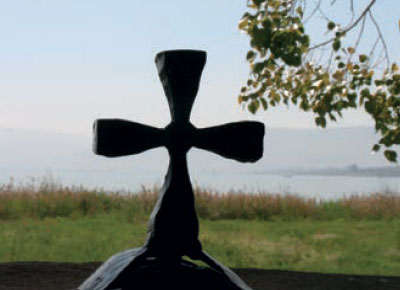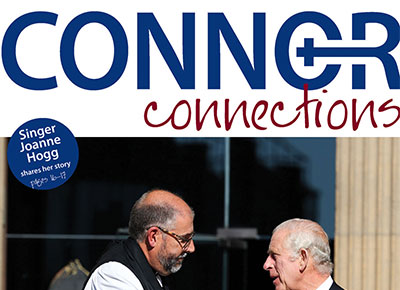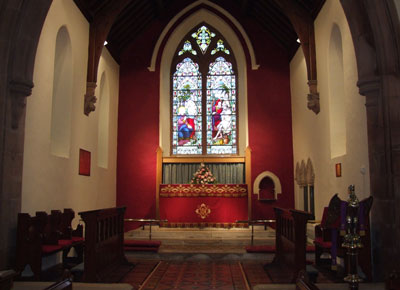A Pastoral Letter from the Bishops of the Church of Ireland
A Pastoral Letter from the Bishops of the Church of Ireland: October 2011
For some time the bishops of the Church of Ireland had planned to undertake a review of their Pastoral Letter of 2003 on human sexuality. The recent debate in the Church of Ireland on issues of sexuality has given added impetus to the bishops’ process of reflection. We also hope, in a structured way, to engage the church at every level in this endeavour.
It is helpful, at the outset, to affirm clearly the teaching of the church on marriage. The Book of Common Prayer describes marriage as ‘part of God’s creation and a holy mystery in which man and woman become one flesh.’ It is to be monogamous, with a publicly declared intention that it be life–long. The church’s teaching has been faithfulness within marriage as the normative context for sexual expression.
The state, in both Northern Ireland and the Republic of Ireland, has provided in law for civil partnerships between persons of the same gender. Such partnerships are one means of conferring specific legal rights, but may not necessarily involve sexual expression. It is clear that they are not recognised by the church as marriage. Indeed they are not recognised by the state as marriage in either jurisdiction. However, because civil partnerships are narrowly limited to people of the same gender, they are often perceived as an equivalent to or imitation of marriage for same sex couples.
Recent well–publicised events within the Church of Ireland concerning the issue of serving clergy and civil partnerships have caused considerable hurt and confusion to many. Others saw what had happened as a positive development. In the Church of Ireland as a whole, in consequence, this has led to a painful experience of disunity. We as bishops take very seriously our responsibility at this time to act in a way that will help to further the unity of the church in truth and love. These issues reflect the difficulties experienced within the wider Anglican Communion, which in recent years has found itself tragically divided by the debate concerning human sexuality.
The bishops’ Pastoral Letter of 2003, appended to this statement, ended with the following words:
‘This is an area of life where deeply held views, powerful emotions and the potential for causing great harm hold sway. We may have to learn how or whether we will be able to live peaceably and with integrity with very different viewpoints within the family of the Church and the household of faith.’
While the 2003 Pastoral Letter laid out the situation, it did not put in place a means by which the church could adequately engage with the challenges expressed in the document, and find a way forward. We are now commending a means by which the church can work through these issues and hopefully come to a common mind. This will involve sustained and committed work for the bishops and for the entire membership of the General Synod in particular.
We plan to organise a major conference in Spring 2012, to which members of the General Synod and some others will be invited. The purpose of the conference is to discuss the content of this Pastoral Letter, to assist the church in becoming more fully informed, and to explore wider issues related to human sexuality. In preparation for this conference, we commit ourselves, as bishops, to additional meetings, including a retreat, where we will study and pray together. The conference is not envisaged to be an end in itself. Study in biblical, theological and legal issues, both before and after the conference, needs to be encouraged and undertaken.
We urge people of all shades of opinion within the Church of Ireland to refrain from any actions or the use of emotive or careless language which may further exacerbate the situation within the Church. Such restraint will greatly facilitate the work ahead.
We commend this entire process to the prayers of the Church.
The Archbishops and Bishops of the Church of Ireland
The Most Revd Alan Harper, Archbishop of Armagh
The Most Revd Michael Jackson, Archbishop of Dublin & Glendalough
The Most Revd Richard Clarke, Bishop of Meath & Kildare
The Rt Revd Harold Miller, Bishop of Down & Dromore
The Rt Revd Paul Colton, Bishop of Cork, Cloyne & Ross
The Rt Revd Ken Clarke, Bishop of Kilmore, Elphin & Ardagh
The Rt Revd Ken Good, Bishop of Derry & Raphoe
The Rt Revd Michael Burrows, Bishop of Cashel & Ossory
The Rt Revd Alan Abernethy, Bishop of Connor
The Rt Revd Trevor Williams, Bishop of Limerick & Killaloe
The Rt Revd Patrick Rooke, Bishop of Tuam, Killala & Achonry
The Rt Revd John McDowell, Bishop of Clogher
© Copyright The Church of Ireland Diocese of Connor 2024 | Web Design by LD2.digital




